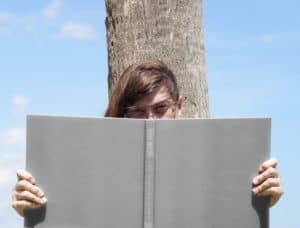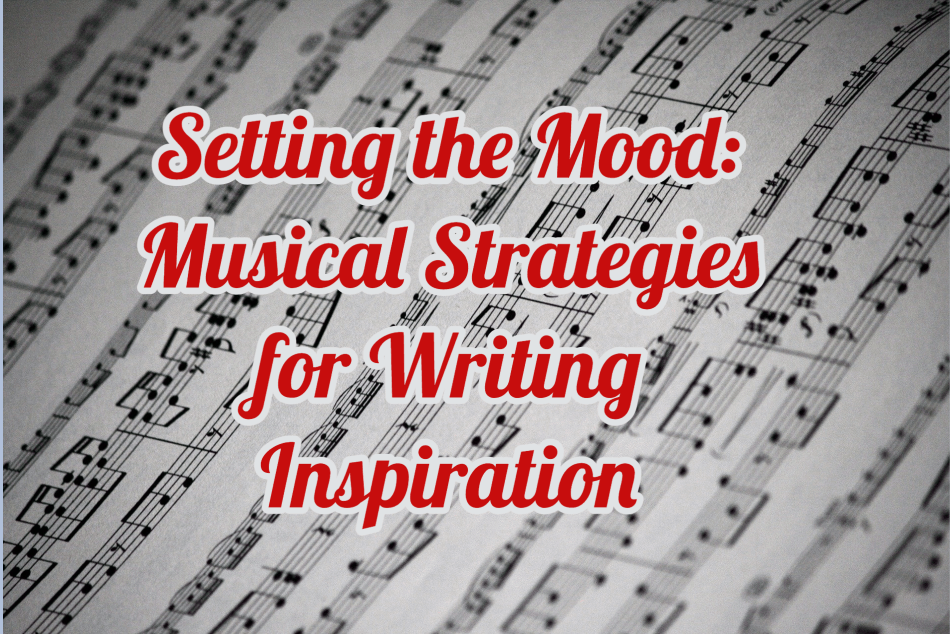by Stormy McDonald
Music has a huge effect on the human brain. Science shows music education helps us learn math. Mnemonic songs help us remember important dates in history. Music both excites and soothes our emotions. At one point or another, haven’t you driven around with music blaring because you were angry, or changed the radio station when a song triggered a painful memory?
With designed playlists, we energize ourselves for exercising or soothe ourselves to sleep. Music is a subliminal messenger that speaks straight to our emotions. Consider the iconic themes from Jaws and The Phantom of the Opera. Though quite different from one another, they both pluck at the nerves, sending a shiver of anticipation through the listener. The opening theme of the Star Wars films, on the other hand, is akin to the fanfare of a monarch’s arrival to greet their subjects, meant to awe and inspire.
Take a whirl into cyberspace and watch a few movie clips with alternate scores, such as this opening clip from Pirates of the Caribbean: Curse of the Black Pearl, rendered foreboding, comical, sad, or triumphant with nothing more than a change in music. You’ll be amazed at how changing the music alters a scene’s mood and impact. It can even affect your perception of characters, as illustrated here.
Gathering Material
As writers, we find inspiration in myriad places, from the mundane to the extraordinary. We take bits from our own experiences and borrow those of friends and family — even from chatty strangers publicly bemoaning their situation in blithe ignorance of the nosy novelist taking in every word. Throw into the mix the wonderland of historical archives in the local library and the boundless realms of the internet, and we have even more fodder to work with, whether it be fictional or strange-but-true.
But what if inspiration strikes when you’re unable to put pen to paper and, by the time you reach your writing space, it’s gone? The right playlist can help recreate the feelings of that fleeting moment or take you in a new and unexpected direction.
Score!
A quick internet search reveals message boards such as Quora and Reddit contain posts where new and aspiring authors ask if it’s okay to listen to music while writing, or they inquire about what types of music, if any, novelists and screenwriters listen to while writing. A former screenwriter from Sony responded that he puts together a score for the story he’s working on while it’s still in the outline phase. Other writers create playlists that blend scores, soundtracks, and every other music genre — anything which delivers the intended feel or mood of their various scenes.
Soundtracks and scores provide emotional cues. To this day, I can’t read any of Robert Howard’s Conan stories without hearing Basil Poledouris’ Anvil of Crom with its pulse pounding drums or hear Queen’s Who Wants to Live Forever without recalling the sadness of Connor McLeod losing his wife in Highlander.
Music to Inspire
The characters who comprise the bounty hunting team of Damage, Inc. in Phantoms of Ruthaer have been waiting impatiently for us to tell their tale for a while. During the early stages of their development, I began assembling a playlist of songs that spoke to me about each character, such as Drivin N Cryin’s “Straight to Hell” for the irascible archer, Dave, and “Adrenaline” by Gavin Rossdale for the team’s leader, Hector. Then I heard “The Outsiders” by Eric Church. Its gritty depiction of a group with a reputation for being dangerous, who aren’t afraid to go their own way, and are willing to stand up to anyone captured the essence of Damage, Inc. The playlist has grown to about three hundred songs from a variety of genres, but each track speaks to me about some aspect of an individual character or of the group as a whole.
I typically pick a few songs from that playlist to set my pre-writing mood. When I’m ready to dive into the story, I break out the instrumental music.
Songs with lyrics distract me, and I find myself singing rather than writing.
Movie and video game scores, New Age, and classical music provide me with the widest variety of emotional backdrops. For Phantoms, I relied heavily on works by Graeme Revell, Jerry Goldsmith, Lorne Balfe, Jesper Kyd, and Lindsey Stirling.
That’s not to say everyone should stick with instrumental music. My husband and writing partner Jason often writes to an eclectic mix of various sub-genres of rock, country, and classical. Of course, some of his playlists give me musical whiplash. Although I like each artist individually, I can’t go from listening to movie scores to country to heavy metal without being jarred out of my writing groove—but hey, to each his own, right?
If you don’t have an in-house music library to pull from, internet music sites such as Spotify and YouTube allow you to choose from a plethora of ready-made playlists sorted by mood, activity, artist, et cetera, or you can create your personal list to suit your particular story mood. Find the rhythm that works for you!
What music gets you going and inspires your writing? Share with us on Facebook.

 Stormy lives in Charleston County, SC with her husband, Jason, their teenage twins, and a small herd of pets. She and Jason are co-owners of Fortress Engineers and Parlatheas Press. Connect with Stormy and her co-authors on Facebook or visit www.mcdonald-isom.com to learn more about their writing universe and what they’re working on now.
Stormy lives in Charleston County, SC with her husband, Jason, their teenage twins, and a small herd of pets. She and Jason are co-owners of Fortress Engineers and Parlatheas Press. Connect with Stormy and her co-authors on Facebook or visit www.mcdonald-isom.com to learn more about their writing universe and what they’re working on now.





